Text
Turmeric: Unveiling the Golden Spice's Extraordinary Health Elixir

In the realm of spices, turmeric stands out as a radiant jewel, its vibrant yellow hue mirroring the myriad of health benefits it possesses. This culinary gem, native to Southeast Asia, has long been revered for its medicinal properties, weaving its golden threads into the tapestry of traditional Indian and Chinese medicine for centuries. Today, modern science is unraveling the intricate mechanisms behind turmeric's remarkable healing powers, revealing a symphony of benefits that have captivated the attention of researchers and health enthusiasts alike.
A Hepatoprotective Hero: Shielding Your Liver's Well-being
The liver, our body's tireless detoxifier, deserves a champion to safeguard its vital function. Turmeric emerges as a valiant defender, its curcumin, the primary bioactive compound, acting as a potent hepatoprotector. Studies have demonstrated curcumin's ability to reduce liver inflammation, a silent menace that can lead to liver dysfunction. Moreover, curcumin's antioxidant prowess shields liver cells from oxidative damage, promoting regeneration and ensuring optimal liver health.
Skin Radiance Rejuvenated: Unveiling Turmeric's Beauty Secrets
Turmeric's transformative power extends beyond the internal, reaching out to beautify and revitalize the skin. Its anti-inflammatory and antioxidant properties work in harmony to combat skin woes, reducing inflammation, promoting wound healing, and soothing the discomfort of eczema and psoriasis. Curcumin's ability to modulate skin cell proliferation and regulate melanin production further enhances its reputation as a skincare hero.

Digestive Symphony: Harmonizing Gut Health
The delicate dance of digestion often encounters disruptions, leading to discomfort and imbalances. Turmeric steps in as a maestro, its curcumin gently coaxing the digestive system back into harmony. Curcumin's anti-inflammatory properties alleviate the distress of irritable bowel syndrome (IBS), while its antispasmodic effects calm intestinal spasms. Additionally, curcumin's ability to stimulate bile production aids in fat digestion, further enhancing digestive harmony.
Neutralizing Free Radicals: Quelling the Storm of Oxidative Stress
Free radicals, those relentless instigators of oxidative stress, wreak havoc on our cells, accelerating aging and increasing the risk of chronic diseases. Turmeric emerges as a formidable adversary, its curcumin a potent free radical scavenger. By neutralizing these destructive molecules, curcumin protects cells from damage, potentially delaying the onset of age-related diseases and promoting overall well-being.
BDNF Boost: Unleashing the Brain's Learning and Memory Potential
Brain-derived neurotrophic factor (BDNF), a protein crucial for memory formation and cognitive function, often declines with age. Turmeric's curcumin emerges as a BDNF booster, potentially safeguarding against neurodegenerative diseases like Alzheimer's. Studies have shown that curcumin can increase BDNF levels, enhancing cognitive function and preserving memory, offering hope for those facing the challenges of age-related cognitive decline.
Heart Disease Prevention: Fortifying Your Cardiovascular Fortress
The heart, the engine of our existence, deserves unwavering protection. Turmeric stands as a valiant guardian, its curcumin wielding a formidable arsenal against cardiovascular threats. Studies have demonstrated curcumin's ability to lower LDL (bad) cholesterol levels, reduce blood pressure, and improve endothelial function, the lining of blood vessels, effectively fortifying the cardiovascular system against various heart diseases.

Anti-Cancer Potential: Disrupting the Cancerous Dance
Cancer, a relentless adversary, disrupts the delicate balance of cell growth, leading to uncontrolled proliferation. Curcumin, the golden warrior within turmeric, emerges as a potential disruptor of this cancerous dance. Studies have shown that curcumin can inhibit cancer cell growth, induce apoptosis (programmed cell death), and prevent the formation of new blood vessels that tumors need to grow, offering a glimmer of hope in the battle against cancer.
Incorporating Turmeric's Golden Touch: Embracing a Healthier You
Turmeric's versatility extends beyond its medicinal properties, seamlessly blending into culinary creations, adding a vibrant hue and a symphony of flavors to dishes. Infuse your curries, stews, and stir-fries with turmeric's golden touch. For a concentrated dose of curcumin, consider turmeric supplements. Blend turmeric into smoothies or juices for a refreshing and nutritious beverage. And for topical application, create a turmeric paste to nourish and revitalize your skin.
Turmeric, with its rich tapestry of traditional use and growing body of scientific evidence, emerges as a culinary spice with a wealth of potential health benefits. By incorporating turmeric into your diet in various forms, you can harness its natural healing properties and embark on a journey towards a healthier, more vibrant you.
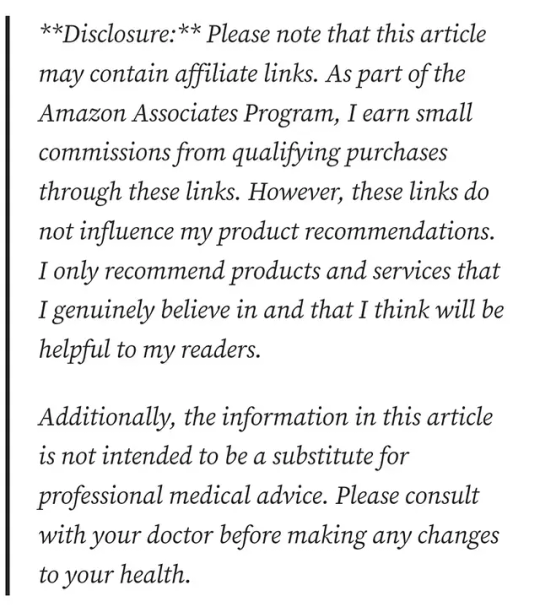
#health#healthy#turmeric#dash diet#digestion#digestivehealth#digestive disorders#digestivewellness#women health#healthy diet#self healing#healingjourney#foods#foodie#food#food stuffs#spices#healthcare#low cal meal#ed meals#ana meal#medicine#medication#medications#self medicating#medicare#medicaid#natural remedy#low cal restriction#reading
0 notes
Text
Unlocking the Power of Low-Carb Vegetables: A Guide to Enhanced Health and Well-being

In the bustling world of health and nutrition, low-carb vegetables stand out as unsung heroes, quietly offering an array of benefits that can transform your well-being. These nutritional powerhouses, often overlooked in favor of their more glamorous counterparts, hold the key to unlocking a healthier, more vibrant you.
The Science Behind the Benefits
Low-carb vegetables aren't just about counting carbs; they're about embracing a nutrient-dense approach to eating. These culinary gems are packed with fiber, vitamins, minerals, and antioxidants, each playing a crucial role in optimizing your health.
1. Blood Sugar Balance:
Fiber, the abundant star of low-carb vegetables, acts as a natural regulator of blood sugar levels. It slows down the absorption of sugar into the bloodstream, preventing those dreaded spikes and crashes that can wreak havoc on your energy levels and overall health. This makes low-carb vegetables a valuable ally for individuals with diabetes or those seeking to prevent it.
2. Digestive Health Enhancement:
Fiber's benefits extend far beyond blood sugar control. It acts as a gentle yet effective digestive aid, adding bulk to stool and promoting regular bowel movements. Additionally, fiber nourishes the beneficial bacteria in your gut, creating a thriving microbiome that supports overall digestive health.
3. Cardiovascular Disease Risk Reduction:
Low-carb vegetables often come with the added bonus of being low in saturated and trans fats, the notorious culprits behind elevated cholesterol levels and increased cardiovascular risk. By swapping out high-fat foods for these nutrient-rich alternatives, you can significantly lower your risk of heart disease, stroke, and other cardiovascular complications.
4. Weight Management Support:
In the quest for a healthy weight, low-carb vegetables emerge as powerful allies. Their low-calorie, high-fiber content makes them incredibly satiating, keeping you feeling fuller for longer and reducing overall calorie intake. This can be a game-changer for those seeking to achieve and maintain a healthy weight.

A Culinary Adventure with Low-Carb Vegetables
The beauty of low-carb vegetables lies in their versatility and flavor. They seamlessly blend into a variety of dishes, adding texture, color, and a symphony of nutrients to your meals. Here are some culinary gems to explore:
1. Cruciferous Companions:
Cauliflower, broccoli, Brussels sprouts, kale, and cabbage are cruciferous vegetables that are not only low in carbs but also brimming with vitamins, minerals, and antioxidants. Studies have even linked them to anti-inflammatory and anticancer properties, making them a wise addition to your diet.
2. Leafy Green Powerhouses:
Spinach, collard greens, Swiss chard, and arugula are leafy green vegetables that pack a nutritional punch while remaining low in carbs. They are excellent sources of vitamins A, C, and K, as well as folate and iron, making them essential for overall well-being.
3. Asparagus, a Versatile Delight:
Asparagus is a culinary chameleon, adaptable to various dishes and flavors. It's low in carbs, high in fiber, and a good source of vitamin K, folate, and manganese. Studies suggest that asparagus may help protect against cognitive decline and promote bone health.
4. Bell Peppers, a Colorful Symphony:
Bell peppers, available in an array of vibrant colors, are not only visually appealing but also nutritionally dense. They are low in carbs and a good source of vitamin C and potassium. Studies have shown that bell peppers possess antioxidant and anti-inflammatory properties, contributing to their potential role in reducing chronic disease risk.

5. Eggplant, a Culinary Enigma:
Eggplant, with its unique texture and flavor, is a low-carb vegetable with a rich source of fiber, potassium, and manganese. Studies suggest that eggplant consumption may help lower blood pressure and cholesterol levels.
6. Avocados, a Nutrient-Rich Delight:
While technically a fruit, avocados are often embraced in low-carb diets due to their high-fat content and low carbohydrate count. They are a rich source of healthy fats, fiber, and potassium. Studies have linked avocado consumption to improved heart health, reduced inflammation, and enhanced weight management.
Embrace the power of low-carb vegetables and embark on a culinary adventure that nourishes your body, invigorates your mind, and empowers you to live a healthier, more vibrant life.
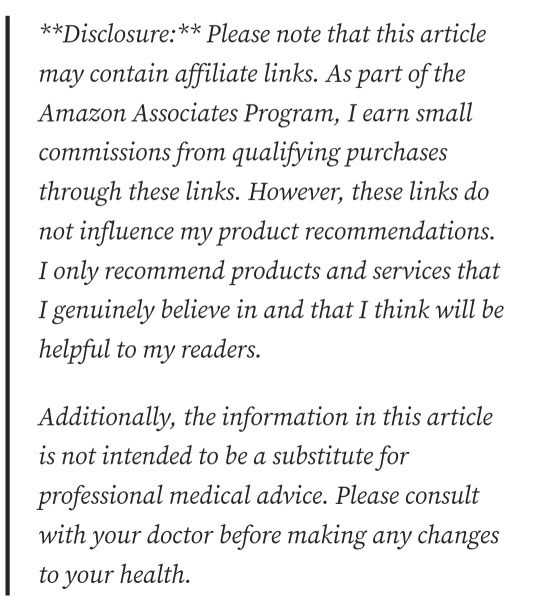
#health#healthy#food#foods#foodie#nutritious#nutrition#healthy diet#low cal diet#dash diet#weight loss diet#diet plan#tw ed diet#dieta ana#diy#low cal restriction#low cal meal#love#women health#self healing#healingjourney#eating#eat#daily diet#daily diets#daily dietary plan#digestion#digestivehealth#digestive disorders#digestivewellness
0 notes
Text
New Way to Keep Your Brain Sharp? This Diet the Key to a Lifetime of Cognitive Function

Imagine a world where you can keep your mind sharp and your memory strong for a lifetime, even as you age. Well, it may be possible, thanks to the DASH diet.
The DASH diet is a healthy eating plan that emphasizes whole grains, fruits, vegetables, and lean proteins, and recommends reducing intake of saturated fats and sodium. The diet was originally developed to help lower blood pressure, but it has since been shown to have other health benefits, including reducing the risk of heart disease, stroke, and type 2 diabetes.
How does the DASH diet protect cognitive health?
The DASH diet may protect cognitive health in a number of ways. First, it helps to reduce the risk of cardiovascular disease, which is a major risk factor for cognitive decline. Cardiovascular disease can damage the brain and lead to cognitive decline over time.
Second, the DASH diet provides the brain with essential nutrients, such as antioxidants and omega-3 fatty acids, which are important for maintaining cognitive function. Antioxidants help to protect the brain from damage, while omega-3 fatty acids are essential for brain development and function.
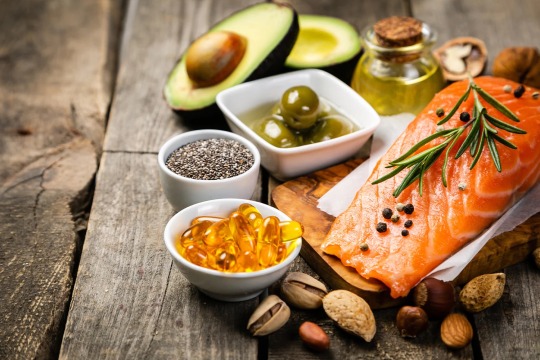
New research on the DASH diet and cognitive health
A new study published in the Journal of the American Heart Association found that women who followed a heart-healthy diet in midlife were less likely to report cognitive decline decades later. The study followed over 1,500 women for over 30 years and found that those who adhered most closely to the DASH diet were 17% less likely to report cognitive decline than those who adhered least to the diet.
The study's authors believe that the DASH diet may protect cognitive health by reducing the risk of cardiovascular disease and providing the brain with essential nutrients. They also note that the DASH diet is a sustainable diet that can be followed for a lifetime, which is important for maintaining cognitive health over the long term.
How to follow the DASH diet
If you're interested in following the DASH diet, there are a few things you can do:
Eat plenty of fruits and vegetables. Aim for at least 4.5 cups of fruits and vegetables per day. Fruits and vegetables are packed with essential nutrients, including antioxidants and vitamins, which are important for cognitive health.
Choose whole grains over refined grains. Whole grains are a good source of fiber and other nutrients that are important for cognitive health. Refined grains, on the other hand, have been stripped of many of their nutrients.
Choose lean protein sources, such as fish, chicken, and beans. Lean protein sources are low in saturated fat and calories, and they are a good source of protein, which is essential for brain function.
Limit saturated and unhealthy fats. Saturated and unhealthy fats can increase your risk of cardiovascular disease,which is a risk factor for cognitive decline.
Reduce your sodium intake. Aim for no more than 2,300 milligrams of sodium per day. Too much sodium can increase your blood pressure, which is a risk factor for cardiovascular disease and cognitive decline.
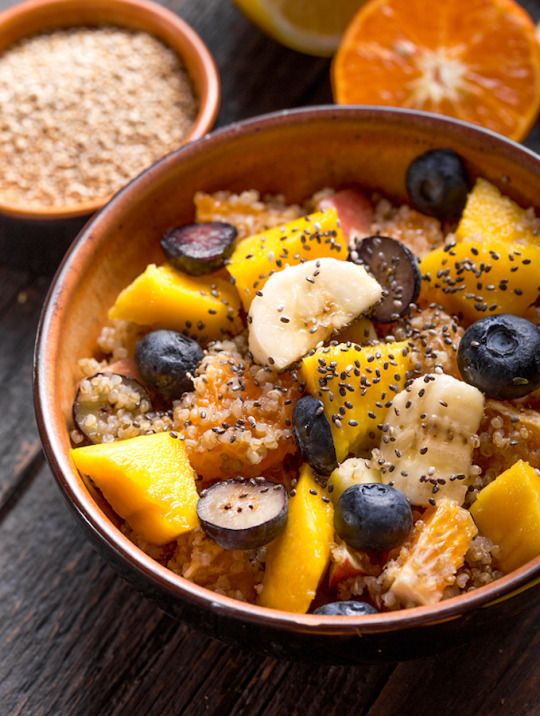
Here is a sample DASH diet meal plan for one day:
Breakfast:
Oatmeal with berries and nuts
Yogurt with fruit and granola
Whole-wheat toast with avocado and eggs
Lunch:
Salad with grilled chicken or fish
Lentil soup
Turkey sandwich on whole-wheat bread with vegetables
Dinner:
Salmon with roasted vegetables
Chicken stir-fry with brown rice
Lentil and vegetable stew
Snacks:
Fruits and vegetables
Nuts and seeds
Yogurt
Conclusion
Following a heart-healthy diet in midlife is one of the best things you can do to protect your cognitive health in later life.The DASH diet is a good option for women of all ages, but it may be especially beneficial for women in midlife who are at increased risk for cognitive decline.
Additional tips for protecting your cognitive health
In addition to following a heart-healthy diet, there are a few other things you can do to protect your cognitive health:
Get regular exercise. Exercise is important for overall health and well-being, including cognitive health. Aim for at least 30 minutes of moderate-intensity exercise most days of the week.
Stay mentally active. Engaging in mentally stimulating activities, such as reading, puzzles, and learning new things, can help to keep your mind sharp.
Get enough sleep. Sleep is essential for cognitive function. Aim for 7-8 hours of sleep per night.
Manage stress. Stress can damage the brain and increase your risk of cognitive decline. Find healthy ways to manage stress,
**Disclosure:** Please note that this article may contain affiliate links. As part of the Amazon Associates Program, I earn small commissions from qualifying purchases through these links. However, these links do not influence my product recommendations. I only recommend products and services that I genuinely believe in and that I think will be helpful to my readers.
Additionally, the information in this article is not intended to be a substitute for professional medical advice. Please consult with your doctor before making any changes to your health.
Thank you for your understanding.
#health#healthy#dash diet#women health#brain health#cognitive decline#mental health#mental illness#cardiovascular#cardiovascular disease#cognitive health#brain function#new research#stress management#manage stress#exercise#exercices#sleep
0 notes
Text
The Sweet Potential of Raspberries: A Delicious Ally in Type 2 Diabetes Management
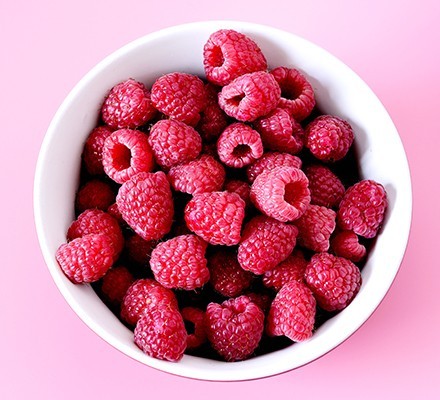
In a world where chronic diseases like type 2 diabetes are on the rise, it's refreshing to discover that nature has its own sweet secrets. Enter raspberries, the vibrant red gems that not only tantalize our taste buds but may also play a role in preventing and managing type 2 diabetes. As someone who has experienced the power of raspberries firsthand, I want to share with you the exciting potential of this humble fruit. So, grab a handful of raspberries and join me on a journey to uncover their sweet secrets.
The Raspberry Connection:
Imagine a warm summer day, plucking ripe raspberries straight from the bush. Little did you know, these tiny treats may hold a key to preventing and managing type 2 diabetes. Emerging research suggests that the bioactive compounds found in raspberries, such as anthocyanins and ellagitannins, may help regulate blood sugar levels and improve insulin sensitivity. They act as natural allies in the fight against diabetes, providing a delicious and accessible solution.
Scientific Backing:
While personal anecdotes are compelling, let's dive into the scientific evidence that supports the potential benefits of raspberries in type 2 diabetes prevention and management. Studies have shown that the antioxidants in raspberries can reduce oxidative stress and inflammation, two key factors contributing to the development and progression of diabetes. Additionally, the high fiber content of raspberries may slow down the release of glucose into the bloodstream, helping to maintain stable blood sugar levels.
Raspberry Powerhouse:
Beyond their potential impact on diabetes, raspberries are a nutritional powerhouse in their own right. Bursting with fiber, vitamins, and minerals, they contribute to overall health and vitality. The fiber in raspberries not only aids in digestion but also helps control appetite and maintain a healthy weight. Plus, the vitamin C and antioxidants found in raspberries support immune function and protect against cellular damage.

Raspberry Rhapsody:
Incorporating raspberries into your diet is a delightful and versatile experience. Enjoy them fresh as a snack, add them to your morning smoothies, sprinkle them over yogurt, or use them in baking for a burst of natural sweetness. The possibilities are endless, limited only by your imagination and taste preferences.
Raspberry Tips:
To make the most of your raspberry experience, here are some practical tips:
1. Selecting Raspberries: Choose plump, brightly colored berries that are firm to the touch. Avoid any with mold or mushy spots.
2. Storing Raspberries: Keep raspberries refrigerated and consume them within a few days to maintain freshness. Avoid washing them until you're ready to eat them to prevent spoilage.
3. Enjoying Raspberries: Explore different ways to incorporate raspberries into your meals and snacks. From smoothies and salads to desserts and sauces, let your creativity guide you.
Beyond Diabetes:
While raspberries' potential benefits for type 2 diabetes are exciting, their impact extends beyond blood sugar control. Research suggests that the antioxidants in raspberries may help reduce the risk of heart disease, support brain health, and even contribute to cancer prevention. So, by enjoying raspberries, you're nourishing your body in more ways than one.
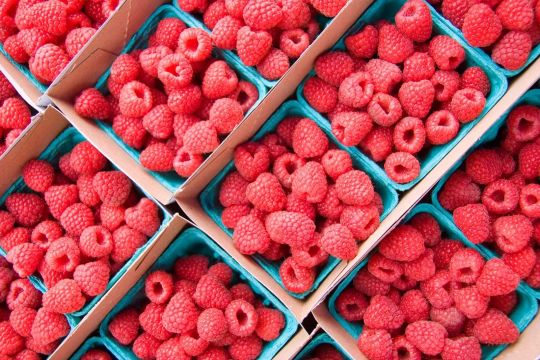
A Sweet Reminder:
As we conclude our raspberry journey, let's remember the sweet potential they hold for our health. While raspberries can be a valuable addition to a diabetes-friendly diet, it's important to consult with a healthcare professional for personalized advice. So, indulge in the delicious sweetness of raspberries, knowing that you're taking a step towards a healthier and more vibrant life. Cheers to the power of nature's sweet secrets!
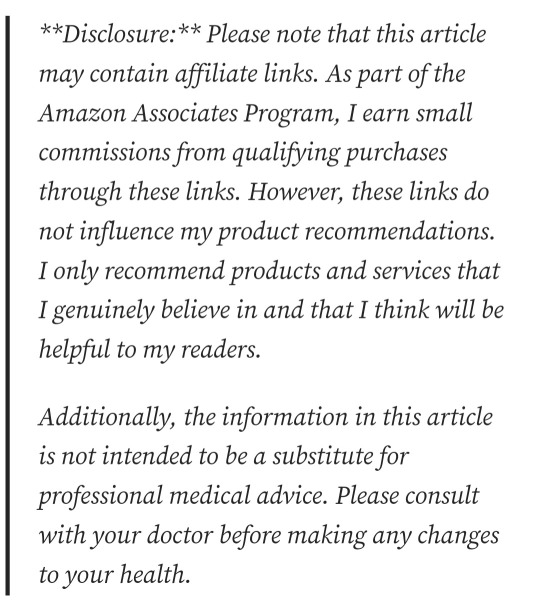
0 notes
Text
Eyes, Blood Sugar, and You: Understanding the Connection for Optimal Eye Health

Hey there! As we focus on our overall well-being, it's important not to forget about the impact of blood sugar levels on our precious eyes. Keeping our blood sugar in check isn't just crucial for managing diabetes; it's also vital for protecting our vision. In this article, we'll dive into the connection between blood sugar and eye health, understand the risks of uncontrolled blood sugar, and share practical tips to maintain optimal eye health.
Understanding the Connection:
Did you know that consistently high blood sugar levels can actually harm the tiny blood vessels in your eyes? This damage, known as diabetic retinopathy, is a common cause of vision loss among folks with diabetes. Not only that, but uncontrolled blood sugar can also increase the risk of other eye problems like cataracts and glaucoma.
The Risks of Uncontrolled Blood Sugar:
1. Diabetic Retinopathy: When your blood sugar is too high for too long, it can damage the blood vessels that nourish your retina. This leads to swelling, leakage, and the growth of abnormal blood vessels, which can blur your vision and even cause vision loss if left untreated.
2. Cataracts: If you have diabetes, you're at a higher risk of developing cataracts. These pesky things cloud up your eye's lens, making it harder to see clearly. You might notice blurry vision, sensitivity to light, or difficulty seeing at night.
3. Glaucoma: Elevated blood sugar levels can also up your chances of getting glaucoma. It's a group of eye diseases that harm your optic nerve over time. Glaucoma gradually steals your peripheral vision, and if you ignore it, you could end up with permanent vision loss.
Tips for Maintaining Optimal Eye Health:
1. Blood Sugar Control: Keep those blood sugar levels in check, my friend! Work closely with your healthcare provider to find the sweet spot for your blood sugar. Whether it's through medication, diet, or exercise, consistency is key to preventing eye complications.
2. Regular Eye Exams: Don't forget to pencil in those comprehensive eye exams at least once a year, or as recommended by your eye care professional. These visits can catch any early signs of eye diseases and allow for timely intervention.
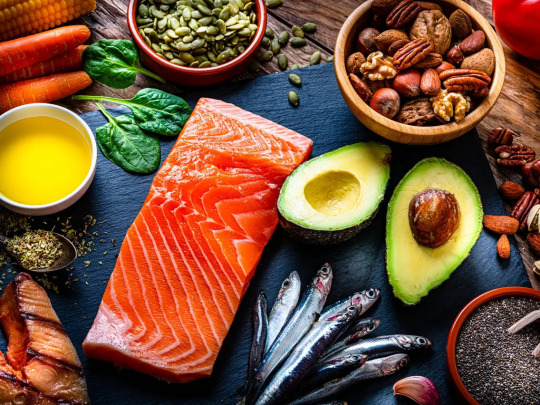
3. Healthy Diet: Power up your peepers by chowing down on a balanced diet. Load up on fruits, veggies, whole grains, lean proteins, and healthy fats. Foods with a low glycemic index can help regulate blood sugar levels and keep your eyes happy.
4. Get Moving: Get that body in motion! Regular exercise helps improve blood circulation, maintain a healthy weight, and boost your overall well-being. Check with your healthcare provider to find an exercise routine that suits you best.
5. Eye Protection: Shield your eyes from those harmful UV rays by rocking a pair of sunglasses with 100% UV protection. And hey, when you're engaging in activities that could put your eyes at risk, don't forget those safety glasses or goggles!
6. Kick the Habit: If you're a smoker, it's time to break up with those cigarettes. Smoking increases the risk of diabetic retinopathy and other eye diseases. You've got this! Seek support from healthcare professionals or support groups to help you quit for good.
Conclusion:
Taking care of your eyes means taking care of your blood sugar too! By understanding the connection between blood sugar and eye health and following these practical tips, you can significantly reduce the risks of diabetic retinopathy, cataracts, and glaucoma. Remember, regular eye exams and making proactive lifestyle choices are the secret sauce to keeping your vision crystal clear. Your eyes are worth it, my friend!
From Spikes to Stability: Conquering High Blood Sugar with a Well-Balanced Diet

We all know that maintaining healthy blood sugar levels is crucial for overall well-being. One powerful tool in our arsenal is creating a balanced daily diet that helps keep those blood sugar spikes in check. In this article, we'll dive into the world of high blood sugar and discover practical tips for balancing our daily diet to support optimal blood sugar control. So, let's get cooking and nourish our bodies from the inside out!
Understanding High Blood Sugar:
When our blood sugar levels consistently run too high, it can lead to a range of health issues, including diabetes and insulin resistance. High blood sugar can cause fatigue, frequent thirst, blurred vision, and even impact our mood and cognitive function. But fear not! By making mindful choices in our daily diet, we can nurture our bodies and find balance.
Tips for Balancing Your Daily Diet:
1. Embrace Complex Carbohydrates: Opt for fiber-rich, complex carbohydrates such as whole grains, legumes, and vegetables. These slow-digesting carbs provide a steady release of glucose, preventing sudden blood sugar spikes.
2. Protein Power: Incorporate lean proteins like skinless poultry, fish, tofu, beans, and nuts into your meals. Protein not only helps you feel full and satisfied but also slows down the digestion of carbohydrates, minimizing blood sugar fluctuations.
3. Healthy Fats: Include heart-healthy fats in your diet, such as avocados, olive oil, nuts, and seeds. These fats help slow down the absorption of glucose, promoting more stable blood sugar levels.

4. Portion Control: Be mindful of portion sizes to avoid overconsumption of carbohydrates. Balancing your plate with appropriate amounts of proteins, whole grains, and vegetables can help maintain a steady blood sugar level throughout the day.
5. Fiber Focus: Load up on fiber-rich foods like fruits, vegetables, whole grains, and legumes. Fiber slows down digestion, promoting a gradual release of glucose into the bloodstream and aiding in blood sugar control.
6. Mindful Snacking: Choose smart snacks that combine protein and complex carbohydrates. Greek yogurt with berries, carrots with hummus, or a handful of nuts and seeds are excellent options that provide sustained energy and help stabilize blood sugar levels between meals.
7. Ditch Sugary Drinks: Avoid sugary beverages like soda, fruit juices, and energy drinks. These can cause rapid spikes in blood sugar levels. Instead, opt for water, unsweetened herbal tea, or infused water for hydration.
8. Hydration Habits: Stay well-hydrated throughout the day, as proper hydration can support healthy blood sugar levels. Remember to drink water regularly and limit alcohol consumption, as excessive alcohol can affect blood sugar control.
9. Meal Planning: Plan your meals ahead of time to ensure a well-balanced diet. This can help you make healthier choices, avoid impulsive decisions, and maintain steady blood sugar levels throughout the day.
10. Seek Professional Guidance: If you're struggling with high blood sugar or need personalized advice, consult with a registered dietitian or healthcare professional who can provide tailored recommendations to meet your specific needs.
Conclusion: By embracing a balanced daily diet, we can take charge of our high blood sugar and promote overall well-being. Remember, small changes can have a big impact on our health. So, let's savor the journey of nourishing our bodies with complex carbohydrates, lean proteins, healthy fats, and plenty of fiber. By making mindful choices and finding joy in our daily diet, we can achieve the balance our bodies crave and keep those blood sugar levels happy and healthy!
Disclaimer: This article is for informational purposes only and should not replace medical advice. Remember to consult with your healthcare provider or eye care professional for personalized guidance based on your specific needs.
#healthy#health#help#healthcare#headlines today news#headline news#self healing#heartbreak#healthy diet#low cal diet#weight loss diet#diet plan#education#natural remedy#long reads#reading#relationship#us#uk#usa#update#latest news#nutritious#breaking news#world news#nature#news#blog#world#writing
0 notes
Text
Nervous System Wellness 101: How to Protect and Maintain Your Nerves

Caring for your nervous system is crucial for maintaining overall health and well-being. Here are some essential tips on how to take care of your nerve system:
1. Eat a Balanced Diet: A healthy diet plays a vital role in supporting your nervous system. Ensure that you consume a variety of nutrient-dense foods, including fruits, vegetables, whole grains, lean proteins, and healthy fats. These provide essential vitamins, minerals, and antioxidants that support nerve function and protect against oxidative stress.
2. Stay Hydrated: Proper hydration is essential for optimal nerve function. Drink an adequate amount of water throughout the day to keep your nerves hydrated and to facilitate the transmission of nerve signals.
3. Exercise Regularly: Physical activity not only benefits your muscles and cardiovascular system but also supports your nervous system. Engage in regular exercise, such as walking, jogging, swimming, or yoga, to improve blood circulation, reduce inflammation, and promote the health of your nerve cells.

4. Prioritize Sleep: Quality sleep is crucial for nerve cell regeneration and repair. Aim for 7-9 hours of uninterrupted sleep each night to ensure your nervous system gets the rest it needs to function optimally.
5. Manage Stress: Chronic stress can negatively impact your nervous system. Implement stress management techniques, such as deep breathing exercises, meditation, yoga, or engaging in hobbies you enjoy. Find what works best for you to reduce stress levels and support your nerve health.
6. Protect Yourself from Toxins: Exposure to environmental toxins can harm your nervous system. Minimize your exposure to harmful chemicals, pollutants, and toxins. Use natural cleaning products, avoid smoking and excessive alcohol consumption, and limit your exposure to pesticides and other harmful substances.
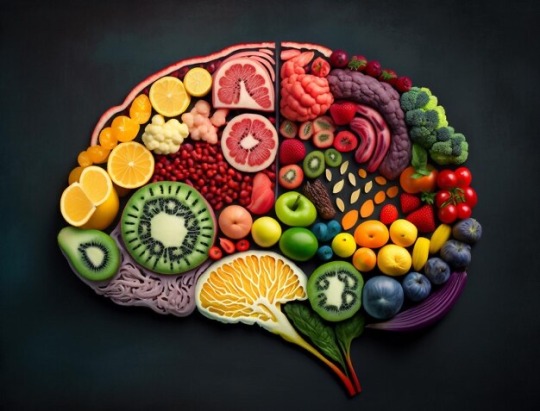
7. Maintain a Healthy Weight: Obesity and excess body weight can increase the risk of nerve damage and nerve-related conditions. Maintain a healthy weight through a balanced diet and regular exercise to reduce the strain on your nerves and support their optimal function.
8. Protect Your Head: Traumatic brain injuries can have a severe impact on your nervous system. Take precautions to prevent head injuries, such as wearing seatbelts, using helmets during sports or other activities with a risk of head injury, and practicing safe driving habits.
9. Stay Socially Active: Engaging in social activities and maintaining strong social connections can have a positive impact on your nervous system. Social interaction and support help reduce stress and promote emotional well-being, which in turn benefits your nerve health.
10. Consult a Healthcare Professional: If you experience any persistent or concerning symptoms related to your nervous system, such as numbness, tingling, weakness, or changes in coordination, it's important to seek medical advice. A healthcare professional can evaluate your symptoms, provide a proper diagnosis, and guide you on the best course of action.
Remember, taking care of your nervous system is an ongoing process. By adopting these habits and making conscious lifestyle choices, you can support the health and function of your nerve system, leading to overall improved well-being.
Boost Your Nerve System Health with These Fantastic Supplements

When it comes to maintaining a healthy nerve system, sometimes our bodies need a little extra support. That's where supplements come in! These fantastic helpers can provide the nutrients and compounds our nerves need to stay in tip-top shape. If you're looking to give your nerve system a boost, here are some of the best supplements you should consider. Let's dive in and discover the wonders they can do for your nerve health!
1. Vitamin B12: The Nerve System's Best Friend
Vitamin B12 is a true superstar when it comes to nerve health. It plays a crucial role in the formation of myelin, the protective coating around nerve fibers. By ensuring adequate B12 levels, you can support proper nerve function and reduce the risk of nerve damage. Consider adding a B12 supplement to your routine, especially if you follow a vegetarian or vegan diet, as B12 is primarily found in animal-based foods.
2. Alpha-Lipoic Acid: The Antioxidant Defender
Alpha-lipoic acid (ALA) is a powerful antioxidant that helps protect nerve cells from damage caused by free radicals. It also supports healthy blood sugar levels, which is important for nerve health. ALA has been shown to alleviate symptoms of neuropathy, a condition characterized by nerve damage. Including an ALA supplement in your regimen can provide that extra boost your nerves need to stay healthy and resilient.

3. Omega-3 Fatty Acids: Nourishment for Your Nerves
Omega-3 fatty acids, such as DHA and EPA, are not only beneficial for brain health but also for your nerves. These healthy fats provide the building blocks for nerve cell membranes and support proper nerve signaling. Incorporating an omega-3 supplement, like fish oil or algae oil, can help nourish your nerves and promote their optimal function.
4. Magnesium: The Calming Mineral
Magnesium is an essential mineral that plays a vital role in nerve function and relaxation. It helps regulate neurotransmitters and supports the transmission of nerve signals. Low magnesium levels have been associated with increased nerve excitability and muscle cramps. By adding a magnesium supplement to your routine, you can promote a calm and healthy nerve system.
5. Curcumin: The Golden Spice for Nerves
Curcumin, the active compound found in turmeric, has powerful anti-inflammatory and antioxidant properties. It has been shown to reduce nerve inflammation, relieve pain, and support nerve regeneration. Including a high-quality curcumin supplement can be a game-changer for your nerve health, providing natural support and relief.
Conclusion: Your nerve system deserves the best care, and these incredible supplements can provide the extra nourishment and support it needs. Remember, it's always a good idea to consult with a healthcare professional before starting any new supplements, especially if you have underlying health conditions or are taking other medications. So, go ahead and give your nerves the love they deserve by incorporating these fantastic supplements into your daily routine. Your nerve system will thank you with improved function, resilience, and overall well-being!

#healthy#health#nutrition#nutritious#healthcare#antioxidants#healthy diet#weight loss diet#low cal diet#diet plan#natural remedy#tips#latest news#headlines today news#news#world news#breaking news#headline news#brainstorm
16 notes
·
View notes
Text
Omega-3 Fatty Acids: Fuel for the Brain - How DHA and EPA Enhance Brain Functions

Are you ready to unlock the secret to a healthier brain? Look no further than omega-3 fatty acids! These power-packed nutrients can do wonders for your brain health. Let's dive into the incredible benefits of omega-3s and discover how they can boost your cognitive abilities. Get ready to embrace a brain-boosting journey that will leave you feeling sharper and more focused than ever!
2. Memory and Learning: Omega-3s are involved in synaptic plasticity, which is the ability of brain cells to form and strengthen connections. This process is crucial for learning and memory formation. Studies have suggested that higher levels of omega-3 fatty acids are associated with better cognitive performance, improved memory, and reduced risk of age-related cognitive decline.
3. Mood and Mental Health: Omega-3s have been linked to improved mood and mental health. They play a role in regulating neurotransmitters involved in mood, such as serotonin and dopamine. Studies have shown that omega-3 supplementation may help reduce symptoms of depression, anxiety, and bipolar disorder.

4. Neuroprotection: Omega-3s possess anti-inflammatory properties and help protect the brain against oxidative stress. Chronic inflammation and oxidative damage can contribute to neurodegenerative diseases, such as Alzheimer's and Parkinson's. Omega-3 fatty acids have been shown to reduce the risk of these diseases and slow down their progression.
5. Brain Aging: As we age, the brain undergoes natural changes that can affect cognitive function. Omega-3 fatty acids may help support brain health and protect against age-related cognitive decline. Studies have suggested that a higher intake of omega-3s is associated with a reduced risk of dementia and Alzheimer's disease.
It's important to note that while omega-3 fatty acids are essential for brain health, they are not a magic solution. A balanced diet, regular exercise, quality sleep, and overall healthy lifestyle habits are also crucial for optimal brain function. Adding omega-3-rich foods like fatty fish (salmon, mackerel, sardines), flaxseeds, chia seeds, and walnuts to your diet or considering omega-3 supplementation under the guidance of a healthcare professional can help support brain health.
Boost Your Brain Power with Delicious Omega-3 Rich Foods
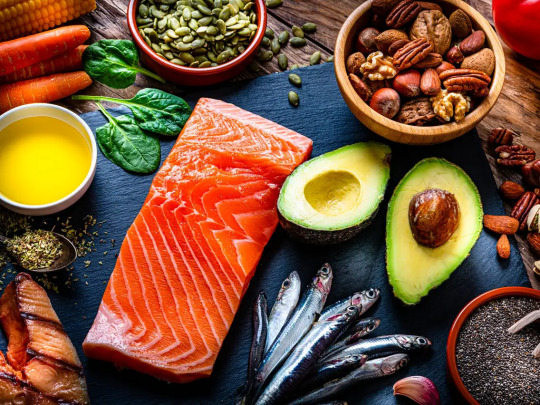
Are you looking for a tasty way to give your brain a boost? Look no further! Incorporating omega-3 fatty acids into your diet can have a positive impact on your brain health and cognitive function. The best part? These brain-boosting foods are not only good for you but also delicious! So, let's dive into a world of flavors and discover the omega-3 rich foods that can nourish your brain and tantalize your taste buds.
1. Fatty Fish: Seafood Sensations
Let's start with a seafood extravaganza! Fatty fish like salmon, mackerel, trout, sardines, and tuna are not only incredibly tasty but also packed with omega-3 fatty acids. Whether you grill them, bake them, or toss them into a salad, these fishy delights will give your brain a nutritious and flavorsome treat.
2. Flaxseeds: Tiny Powerhouses
Who knew that something so small could have such a big impact? Flaxseeds are a fantastic plant-based source of omega-3s. Sprinkle these little powerhouses on your morning yogurt, oatmeal, or salads to add a nutty crunch and a brain-boosting punch to your meals.
3. Chia Seeds: Super Seeds for Brain Power
Chia seeds are here to save the day! These tiny seeds are not only trendy but also packed with omega-3 fatty acids. Mix them into your smoothies, sprinkle them on top of your yogurt, or whip up a delicious chia seed pudding to satisfy your taste buds and give your brain a delightful treat.
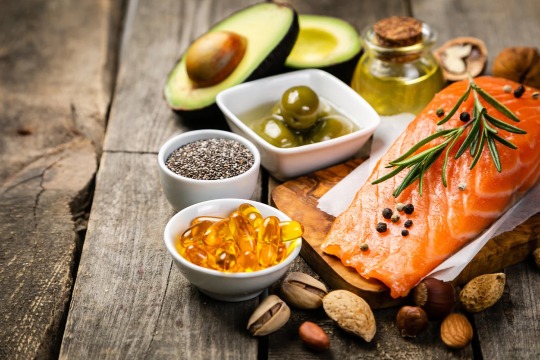
4. Walnuts: Nature's Brain-Boosting Snack
Crack open a walnut and unlock a world of brain-boosting goodness. These delicious nuts are not only a great source of omega-3s but also a convenient snack. Enjoy a handful of walnuts on their own, sprinkle them on top of salads, or add them to your favorite oatmeal or yogurt for a satisfying crunch and a brain-loving punch.
5. Hemp Seeds: Nutty Goodness for Your Brain
Let's go nuts with hemp seeds! These nutty seeds are rich in omega-3 fatty acids and can add a delightful flavor to your meals. Toss them into your smoothies, sprinkle them on salads, or use them as a topping for soups and stews to give your brain a nourishing and delicious boost.
6. Brussels Sprouts: A Veggie Treat for Your Brain
Who says vegetables can't be brain-boosting? Brussels sprouts, those little green powerhouses, contain omega-3 fatty acids. Roast or steam them as a side dish, or add them to stir-fries for a tasty and brain-loving meal that will make your taste buds sing.
7. Spinach: Leafy Greens for Brain Health
Popeye knew what he was doing! Spinach is not only good for your muscles but also for your brain. This nutrient-packed leafy green contains omega-3 fatty acids. Add spinach to your salads, blend it into your smoothies, or sauté it as a delicious side dish to give your brain a healthy and tasty treat.
8. Soybeans: A Plant-Based Omega-3 Delight
Soybeans, including edamame, are a fantastic vegetarian source of omega-3s. Snack on edamame, add them to stir-fries, or incorporate them into soups and salads for a plant-powered brain boost that will leave you feeling satisfied and nourished.
9. Algal Oil: From the Sea to Your Brain
Ever heard of algal oil? It's derived from algae and is an excellent plant-based source of omega-3 fatty acids. Look for algal oil supplements or check out food products fortified with algal oil to give your brain a boost from the sea.
10. Omega-3 Enriched Eggs: Eggs-cellent Brain Food
Did you know that some eggs are enriched with omega-3 fatty acids? These eggs come from hens that have been fed a diet rich in omega-3s. Check the packaging to ensure you are purchasing omega-3 enriched eggs and enjoy them in your favorite egg dishes for a brain-loving breakfast or brunch.
Conclusion: Boosting your brain power has never been so delicious! By incorporating these omega-3 rich foods into your diet, you can nourish your brain while satisfying your taste buds. Whether you indulge in fatty fish, sprinkle seeds on your meals, or enjoy vegetables and nuts, these culinary delights will give your brain the nourishment it needs for optimal function. So, why not embark on a culinary adventure and let your taste buds and brain thrive together? Enjoy the flavors, embrace the benefits, and savor the journey to a healthier and happier brain!
#healthy#health#headline news#healthy diet#headlines today news#healthcare#help#self healing#heartbreak#breaking news#latest news#world news#news#business news#natural remedy#nutritious#nutrition#nature#low cal diet#weight loss diet#love#life#long reads
3 notes
·
View notes
Text
Exploring the Surprising Effects of Sex on Brain Boost

When it comes to boosting your brain function, you might be surprised to learn that a little romance can go a long way. Yes, we're talking about the intimate and pleasurable act of sex. Not only does it bring joy and connection, but engaging in sexual activity can also have some surprising benefits for your brain. So, let's delve into the fascinating connection between sex and brain boost and discover how this pleasurable experience can elevate your cognitive abilities.
1. Natural Stress Buster: Clearing the Mental Fog:
When it comes to reducing stress, sex can be a powerful ally. Engaging in sexual activity releases endorphins, the feel-good hormones that flood your brain with a sense of calm and happiness. By decreasing stress levels, sex helps clear the mental fog and allows your brain to function more effectively. So, embrace the intimacy and let your worries melt away for a clearer and sharper mind.
2. Boosting Cognitive Function: Sharpness Between the Sheets:
Believe it or not, sex can actually enhance your cognitive function. During sexual activity, increased blood flow to the brain stimulates the production of new neurons, improving overall brain health. Additionally, the release of hormones like oxytocin and dopamine during sex can enhance memory, focus, and creativity. So, next time you're looking for a mental boost, consider engaging in some intimate time with your partner.
3. Mood Elevation: The Power of Pleasure:
A positive mood is key to optimal brain function, and what better way to elevate your mood than through the pleasure of sex? Sexual activity triggers the release of various hormones and neurotransmitters, including serotonin, which is involved in regulating mood. The afterglow of a satisfying sexual encounter can leave you feeling happier, more content, and ready to take on mental challenges with a positive mindset.

4. Improved Sleep: Pillow Talk for Better Brain Health:
Quality sleep is essential for cognitive function, and sex can play a role in improving your slumber. Engaging in sexual activity before bedtime helps release tension and promotes relaxation, making it easier to fall asleep and achieve a more restful night's rest. By prioritizing intimacy in your evening routine, you're setting the stage for improved brain health and sharper mental performance.
5. Intimacy and Emotional Connection: Nurturing the Brain and Heart:
Last but certainly not least, the emotional connection fostered through sex and intimate relationships has profound effects on brain health. Feeling loved, secure, and emotionally connected releases hormones that reduce stress and anxiety, improving overall brain function. The bond created through intimacy provides a foundation for mental well-being and supports cognitive abilities.
Conclusion: When it comes to boosting your brain function, don't overlook the remarkable benefits of sex and intimacy. From reducing stress and improving cognitive function to elevating mood and promoting better sleep, engaging in sexual activity can give your brain a much-needed boost. So, prioritize intimate connections, embrace pleasure, and let your brain reap the rewards of this pleasurable and beneficial experience. Remember, communication and consent are essential ingredients for a fulfilling and healthy sex life. So, let the intimate connection between sex and brain boost be a reminder to nurture both your physical and mental well-being. Enjoy the journey and let your brain soar to new heights of clarity and happiness!
Beyond the Bedroom: Exploring Activities That Boost Brain Function

While sex is often celebrated as a pleasurable activity that can enhance brain function, there are plenty of other engaging pursuits that offer similar benefits. In fact, a wide range of activities can help boost your brain power and stimulate cognitive function. So, let's dive into a world of diverse and enjoyable pastimes that have the potential to elevate your mental abilities.
1. Exercise: A Workout for the Mind:
Physical exercise isn't just beneficial for your body; it also has a profound impact on your brain. Engaging in regular aerobic exercise, such as running, swimming, or dancing, increases blood flow to the brain, promotes the growth of new neurons, and enhances cognitive function. Whether it's a brisk walk in nature or a sweat-inducing gym session, make exercise a part of your routine to give your brain a workout it deserves.
2. Mindful Meditation: Finding Clarity Within:
Meditation is like a mental gym for your brain. By practicing mindfulness meditation, you can train your brain to focus, reduce stress levels, and improve overall cognitive function. Regular meditation has been shown to increase gray matter density in brain regions associated with attention, memory, and emotional regulation. Dedicate a few minutes each day to sit in stillness, focus on your breath, and watch your brain thrive.
3. Learning a New Skill: Expanding Your Cognitive Horizons:
When you step out of your comfort zone and challenge yourself to learn a new skill, your brain lights up with excitement. Learning stimulates the growth of new connections between brain cells, improving cognitive flexibility and memory. Whether it's playing a musical instrument, mastering a foreign language, or trying your hand at painting, the process of acquiring new knowledge strengthens your brain and enhances its ability to adapt and learn.

4. Puzzles and Brain Games: Teasing Your Neural Networks:
Give your brain a delightful workout by engaging in puzzles, brain teasers, and strategy games. Activities like crosswords, Sudoku, chess, and jigsaw puzzles challenge your cognitive skills, improve memory, and enhance problem-solving abilities. These mentally stimulating games engage various parts of your brain, creating new connections and keeping your mind sharp.
5. Social Connections: Brain Boost Through Human Interaction:
Never underestimate the power of social connections in boosting brain function. Engaging in meaningful conversations, spending time with loved ones, and participating in group activities not only provide emotional support but also stimulate cognitive processes. Social interaction activates different areas of the brain, improves memory retention, and enhances overall brain health. So, prioritize social connections and let your brain thrive in the company of others.
Conclusion: While sex is indeed a pleasurable activity that can stimulate brain function, it's essential to recognize that there are numerous other ways to give your brain a boost. From physical exercise and mindful meditation to learning new skills, puzzles, and social connections, these activities engage the brain, improve cognition, and enhance overall mental well-being. So, explore the diverse array of brain-boosting activities available, find what ignites your passion, and embark on a journey of continuous cognitive growth. Your brain will thank you as it flourishes in the realm of new experiences and mental stimulation. Enjoy the process and let your brain reach new heights of brilliance!
#healthy#health#self healing#heartbreak#healthcare#help#headlines today news#headline news#healthy diet#low cal diet#latest news#weight loss diet#long reads#love#life#liveblogging#nutrition#business news#natural remedy#nutritious#breaking news#world news#news#money#nature#beauty#beautiful#blog#books#black and white
4 notes
·
View notes
Text
Peanuts: A nutrient-rich and versatile snack with many health benefits
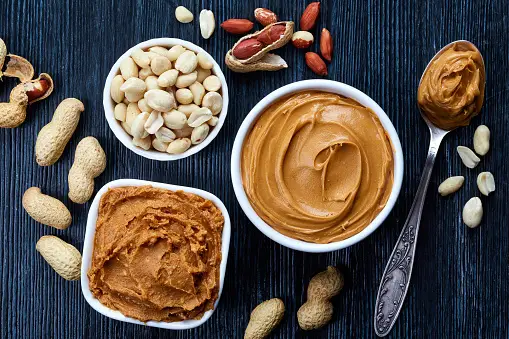
Peanuts are a type of legume that is native to South America. They are one of the most popular snack foods in the world, and for good reason. Peanuts are packed with nutrients and have been linked to a number of health benefits.
**Nutritional value of peanuts:**
Peanuts are a good source of:
* Protein: Peanuts are a good plant-based source of protein, making them a good choice for vegetarians and vegans. One ounce of peanuts contains approximately 6 grams of protein.
* Healthy fats: Peanuts contain mostly monounsaturated and polyunsaturated fats, which are good for heart health. Monounsaturated fats can help to lower LDL (bad) cholesterol levels and raise HDL (good) cholesterol levels. Polyunsaturated fats can also help to lower LDL cholesterol levels.
* Fiber: Peanuts are a good source of fiber, which can help to keep you feeling full and satisfied. Fiber can also help to improve digestion and regularity. One ounce of peanuts contains approximately 3 grams of fiber.
* Vitamins and minerals: Peanuts contain a variety of vitamins and minerals, including vitamin E, magnesium, potassium, and niacin. Vitamin E is an antioxidant that can help to protect cells from damage. Magnesium is important for muscle and nerve function. Potassium is important for blood pressure regulation. Niacin is important for energy metabolism and skin health.
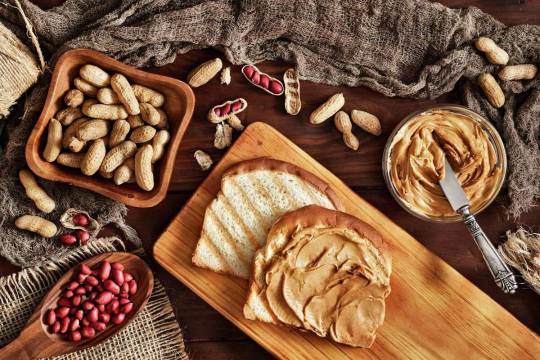
**Health benefits of peanuts:**
Peanuts have been linked to a number of health benefits, including:
* Reduced risk of heart disease: The healthy fats and antioxidants in peanuts can help to lower cholesterol levels and improve blood vessel health. A study published in the journal *Circulation* found that people who ate peanuts or peanut butter at least five times per week had a 14% lower risk of death from heart disease than those who did not eat peanuts or peanut butter.
* Improved blood sugar control: Peanuts have a low glycemic index, meaning they do not cause a rapid spike in blood sugar levels. This makes them a good snack option for people with diabetes or prediabetes. A study published in the journal *Diabetes Care* found that people with type 2 diabetes who ate peanuts or peanut butter as part of a healthy diet had lower blood sugar levels and less insulin resistance than those who did not eat peanuts or peanut butter.
* Weight management: Peanuts are high in protein and fiber, both of which can help you to feel full and satisfied. This can lead to reduced calorie intake and weight loss over time. A study published in the journal *Obesity* found that people who ate peanuts or peanut butter as part of a low-calorie diet lost more weight and body fat than those who did not eat peanuts or peanut butter.
* Cancer prevention: Some research suggests that peanuts may help to protect against certain types of cancer, such as colon cancer and breast cancer. A study published in the journal *Cancer Epidemiology, Biomarkers & Prevention* found that people who ate peanuts or peanut butter at least twice per week had a 27% lower risk of developing colon cancer than those who did not eat peanuts or peanut butter. A study published in the journal *Breast Cancer Research and Treatment* found that women who ate peanuts or peanut butter at least five times per week had a 22% lower risk of developing breast cancer than those who did not eat peanuts or peanut butter.
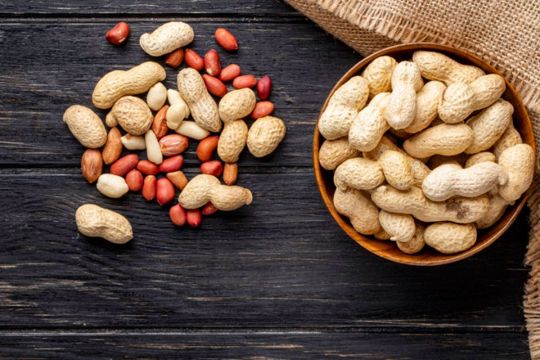
**How to incorporate peanuts into your diet:**
Peanuts can be eaten raw, roasted, or salted. They can also be used to make peanut butter, peanut oil, and other peanut products. Peanuts can be incorporated into a variety of dishes, including salads, soups, stews, and stir-fries.
Here are some tips for incorporating peanuts into your diet:
* Add a handful of peanuts to your breakfast cereal, oatmeal, or yogurt.
* Spread peanut butter on whole-wheat bread or crackers for a healthy snack or sandwich.
* Add peanuts to salads, soups, stews, and stir-fries.
* Snack on peanuts instead of unhealthy snacks like chips or candy.
* Make your own peanut butter at home using raw peanuts and a blender.
**Conclusion:**
Peanuts are a nutritious and versatile snack food with many health benefits. They are a good source of protein, healthy fats, fiber, and vitamins and minerals. Peanuts have been linked to a number of health benefits, including reduced risk of heart disease, improved blood sugar control, weight management, and cancer prevention. Peanuts can be easily incorporated into a variety of dishes, making them a healthy and convenient food choice for everyone.
#healthy#health#help#healthcare#headlines today news#headline news#self healing#heartbreak#healthy diet#business news#breaking news#blog#latest news#natural remedy#nutritious#world news#nature#news#money#beautiful#beauty#low cal diet#weight loss diet#life#love#long reads#liveblogging#literature#journal#gorgeous
3 notes
·
View notes
Text
Omega-6 Fatty Acids: A Comprehensive Guide to the Good, the Bad, and the Balanced

Omega-6 fatty acids are a type of polyunsaturated fat that is essential for human health. They play a role in a variety of bodily functions, including inflammation, blood pressure, and blood clotting. However, too much omega-6 fatty acids can lead to inflammation and other health problems.
The Good
Omega-6 fatty acids are necessary for the production of prostaglandins, which are hormone-like substances that regulate a variety of bodily functions. Prostaglandins can be both beneficial and harmful, depending on the type. For example, some prostaglandins help to reduce inflammation, while others promote inflammation.

Omega-6 fatty acids also play a role in cell growth and development, and they are important for the health of the skin, hair, and nails. Additionally, omega-6 fatty acids are a source of energy for the body.
The Bad
While omega-6 fatty acids are essential for human health, too much can lead to inflammation. Inflammation is a normal process that helps the body to heal from injury and infection. However, chronic inflammation can lead to a number of health problems, including heart disease, cancer, Alzheimer's disease, and arthritis.
The Western diet is typically high in omega-6 fatty acids and low in omega-3 fatty acids. This imbalance can lead to inflammation and other health problems. Omega-6 fatty acids are often found in processed foods and unhealthy vegetable oils, such as soybean oil, corn oil, and canola oil.

The Balanced
The key to getting the most out of omega-6 fatty acids is to consume them in moderation. The following tips can help you to achieve a healthy balance of omega-6 and omega-3 fatty acids in your diet:
Choose healthy sources of omega-6 fatty acids, such as walnuts, almonds, and flaxseeds. These foods contain a type of omega-6 fatty acid called alpha-linolenic acid (ALA), which is less inflammatory than other types of omega-6 fatty acids.
Limit your intake of processed foods, which are often high in unhealthy omega-6 fatty acids.
Increase your intake of omega-3 fatty acids, which can help to reduce inflammation. Good sources of omega-3 fatty acids include fatty fish, such as salmon, tuna, and mackerel, as well as flaxseeds and chia seeds.
Aim for a ratio of omega-6 to omega-3 fatty acids of 4:1 or less. This can be difficult to achieve with the typical Western diet, but it is important to make an effort to get as close as possible.
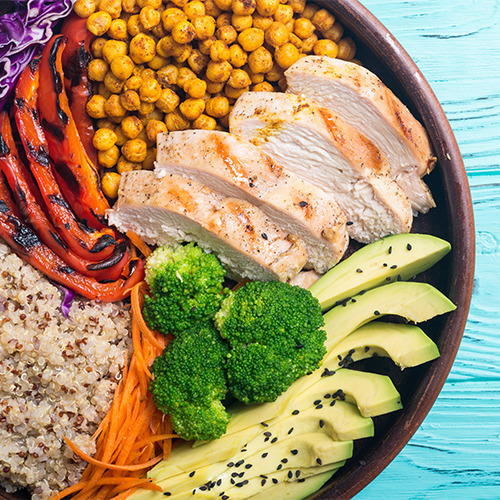
Additional Tips
Here are some additional tips for reducing your intake of omega-6 fatty acids and increasing your intake of omega-3 fatty acids:
Cook with healthy oils, such as olive oil or avocado oil.
Avoid fried foods.
Eat more whole foods, such as fruits, vegetables, nuts, and seeds.
Choose grass-fed beef and lamb instead of grain-fed beef and lamb.
Take an omega-3 supplement if you don't eat fatty fish regularly.
By following these tips, you can help to ensure that you are getting a healthy balance of omega-6 and omega-3 fatty acids in your diet.
Conclusion
Omega-6 fatty acids are an essential part of a healthy diet. However, it is important to consume them in moderation and to balance your intake with omega-3 fatty acids. By following the tips above, you can help to ensure that you are getting the most out of omega-6 fatty acids and reducing your risk of chronic diseases.

How Omega-6 Fatty Acids Affect Your Mood (And What You Can Do About It)
Omega-6 fatty acids are polyunsaturated fatty acids that are essential for human health. They are found in a variety of foods, including vegetable oils, nuts and seeds, fatty fish, and meat and poultry. Omega-6 fatty acids play a role in many important bodily functions, including cell growth, inflammation, and hormone production.
There is growing evidence that omega-6 fatty acids may also play a role in mood. For example, one study found that people with higher levels of omega-6 fatty acids in their blood were more likely to experience symptoms of depression and anxiety. Another study found that taking omega-6 fatty acid supplements improved mood in people with depression.
The exact mechanism by which omega-6 fatty acids affect mood is not fully understood. However, it is thought that they may do so by:
* Affecting the production of neurotransmitters, such as serotonin and dopamine
* Reducing inflammation in the brain
* Promoting the growth and repair of nerve cells
It is important to note that the research on the relationship between omega-6 fatty acids and mood is still ongoing. More research is needed to determine the optimal intake of omega-6 fatty acids for mood health.
However, there are some things you can do to make sure you are getting a healthy balance of omega-6 fatty acids in your diet:
* Choose plant-based oils that are high in monounsaturated fats, such as olive oil and avocado oil.
* Limit your intake of processed foods, which are often high in omega-6 fatty acids and inflammatory ingredients.
* Eat plenty of fruits, vegetables, and whole grains.
* Include fatty fish in your diet at least two times per week.
* Consider taking an omega-3 fatty acid supplement. Omega-3 fatty acids can help to balance the effects of omega-6 fatty acids in the body.
If you are concerned about your mood or mental health, talk to your doctor. They can help you to assess your diet and lifestyle and make recommendations to improve your overall health and well-being.
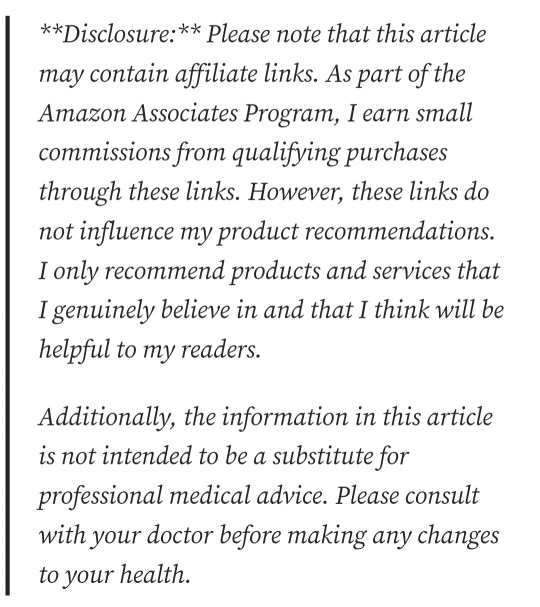
#healthy#health#healthcare#help#headlines today news#headline news#self healing#heartbreak#healthy diet#trends#natural remedy#long reads#reading#education#weight loss diet#world news#black and white#world#writing#latest news#business news#nutritious#breaking news#nature#news#money#antioxidants#science#diet plan#low cal diet
2 notes
·
View notes
Text
The Best Sources of Omega-3s: Fish vs. Algae vs. Walnuts. The Essential Nutrient for Heart Health, Brain Health, and More

Omega-3 fatty acids are a type of polyunsaturated fat that is essential for human health. They play a role in brain development, heart health, and inflammation reduction. The two most important omega-3 fatty acids are eicosapentaenoic acid (EPA) and docosahexaenoic acid (DHA).
EPA and DHA are found in fish, shellfish, algae, and some plant oils. Walnuts are the only plant food that contains a significant amount of ALA, which the body can convert to EPA and DHA. However, the conversion rate is low, so you need to eat more walnuts than fish or algae to get the same amount of EPA and DHA.

EPA and DHA have been shown to have a number of health benefits, including:
* Reducing inflammation
* Improving heart health
* Protecting against cognitive decline
* Promoting brain development in children
* Reducing the risk of chronic diseases such as cancer, Alzheimer's disease, and depression
* Supporting eye health
* Reducing joint pain
The American Heart Association recommends that adults eat two servings of fish per week, especially fatty fish such as salmon, tuna, mackerel, sardines, and herring. These fish are good sources of EPA and DHA.
If you are vegetarian or vegan, you can get EPA and DHA from algae supplements. Algae are a type of marine plant that is rich in EPA and DHA. Algae supplements are available in capsule, powder, and liquid form.
Walnuts are a good source of ALA, which the body can convert to EPA and DHA. However, the conversion rate is low, so you need to eat a lot of walnuts to get the same amount of EPA and DHA as you would from fish or algae.

Here are some tips for getting more omega-3 fatty acids in your diet:
* Eat two servings of fish per week, especially fatty fish such as salmon, tuna, mackerel, sardines, and herring.
* Take an algae supplement if you are vegetarian or vegan.
* Add walnuts to your diet.
* Choose plant oils that are high in omega-3 fatty acids, such as flaxseed oil and canola oil.
* Avoid processed foods, which are often high in unhealthy fats and low in omega-3 fatty acids.
Omega-3 fatty acids are essential nutrients that have many health benefits. The best sources of omega-3s are fish, algae, and walnuts. However, the types of omega-3s found in these foods are not the same. The omega-3s found in fish and algae are more active and have more health benefits than the omega-3s found in walnuts. If you are looking for the best sources of EPA and DHA, fish and algae are the way to go. However, if you are vegetarian or vegan, walnuts are a good source of ALA.
#healthy#health#help#healthcare#headlines today news#headline news#self healing#heartbreak#healthy diet#antioxidants#black and white#latest news#natural remedy#business news#nutritious#breaking news#world news#nature#news#money#blog#business#low cal diet#weight loss diet#long reads#liveblogging#life#love#food#diet plan
2 notes
·
View notes
Text
Supercharge Your Memory: The Best Brain-Boosting Supplements

In the pursuit of optimal cognitive function, many individuals turn to supplements that are believed to support brain health and memory. While it's crucial to acknowledge that responses to supplements can vary among individuals, there are several popular options that have garnered attention in this realm. This article delves into the science behind these supplements and their potential benefits for memory enhancement. It is important to note that before incorporating any new supplements into your routine, consulting with a healthcare professional is highly recommended to ensure safety and appropriateness.
1. Omega-3 Fatty Acids: Nourishing the Brain
Omega-3 fatty acids, abundantly found in fish oil and certain nuts, have gained recognition for their potential brain-boosting properties. These essential fats, including docosahexaenoic acid (DHA) and eicosapentaenoic acid (EPA), play integral roles in brain structure and function. Research suggests that omega-3s may aid in improving memory and cognitive abilities, supporting overall brain health and reducing the risk of cognitive decline.

2. Bacopa Monnieri: Herb for Cognitive Enhancement
Bacopa monnieri, an herb with a long history of use in traditional medicine, has become a subject of interest for its potential to enhance memory and cognitive function. Active compounds in Bacopa, such as bacosides, are believed to have neuroprotective properties that can improve synaptic communication, boost antioxidant defenses, and promote nerve cell regeneration. Several studies have shown promising results in terms of memory improvement and attention enhancement with Bacopa supplementation.
3. Ginkgo Biloba: Ancient Tree's Modern Benefits
Derived from the leaves of the ginkgo tree, Ginkgo biloba has been used for centuries in traditional medicine. Its popularity stems from its purported ability to enhance memory and cognitive function. Ginkgo biloba contains flavonoids and terpenoids, which act as antioxidants and vasodilators, supporting healthy blood flow to the brain. While research results have been mixed, some studies suggest that Ginkgo biloba may modestly improve memory and cognitive performance, particularly in individuals with age-related cognitive decline.

4. Curcumin: Turmeric's Golden Compound
Curcumin, the active compound in turmeric, has gained attention for its anti-inflammatory and antioxidant properties. Inflammation in the brain has been linked to cognitive decline and neurodegenerative diseases. Curcumin's ability to cross the blood-brain barrier has led researchers to investigate its potential benefits for brain health. Although evidence is limited, studies suggest that curcumin may have neuroprotective effects, enhance memory, and improve overall cognitive function. However, more research is needed to establish its efficacy.
5. Vitamin B12: Crucial for Cognitive Vitality
Vitamin B12 plays a vital role in maintaining proper brain function, and a deficiency in this nutrient can lead to memory problems and cognitive decline. This essential vitamin is involved in the synthesis of neurotransmitters and myelin, which are essential for neuronal signaling and maintaining the integrity of the nervous system. Adequate levels of vitamin B12 are crucial for optimal brain health, and supplementation may be necessary for individuals with deficiencies or those following certain dietary patterns.
While the supplements mentioned above have shown promise in supporting brain health and memory, it is important to emphasize that individual responses can vary, and further research is needed to fully understand their efficacy and potential side effects. As always, it is prudent to consult with a healthcare professional before incorporating any new supplements into your routine. They can provide personalized guidance based on your specific needs and health status.

Upgrade Your Brain: Discover the Best Foods for Improved Cognitive Performance
Are you ready to give your brain a turbocharge? Look no further than your plate! Just like any other organ in your body, your brain thrives on the nutrients you provide it. By embracing a brain-boosting diet, you can nourish your mind with the fuel it needs to perform at its best. So, let's dive into the world of delicious and nutritious foods that will help unlock your brain's full potential!
1. Omega-3 Fatty Acids: The Brain's Best Friend:
Let's start with the superstar of brain-boosting nutrients: omega-3 fatty acids. These healthy fats are like superheroes for your brain, supporting its structure and function. Fatty fish like salmon, mackerel, and sardines are rich sources of omega-3s. If you're not a fan of seafood, don't worry! You can get your omega-3 fix from plant-based sources such as flaxseeds, chia seeds, and walnuts. These fats help enhance memory, improve cognitive function, and promote overall brain health.
2. Colorful Fruits and Vegetables: A Rainbow for Your Brain:
When it comes to brain-boosting foods, think vibrant and colorful! Fruits and vegetables rich in antioxidants, vitamins, and minerals are essential for maintaining a healthy brain. Berries, such as blueberries, strawberries, and blackberries, are packed with powerful antioxidants that protect the brain from oxidative stress and improve memory. Dark leafy greens like spinach and kale are loaded with brain-loving nutrients such as vitamin K, folate, and antioxidants. So, make your plate a rainbow of colors and let your brain reap the benefits!
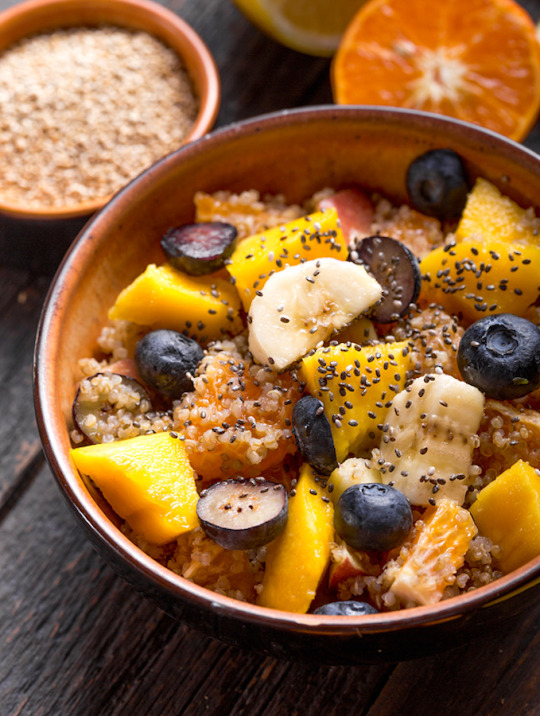
3. Whole Grains: The Energy Source for Your Brain:
Your brain needs a steady supply of energy to function optimally, and that's where whole grains come in. Opt for whole grain foods like brown rice, quinoa, oats, and whole wheat bread. These complex carbohydrates provide a slow and steady release of glucose, the brain's primary energy source. They also contain fiber, which helps regulate blood sugar levels and keeps your brain fueled throughout the day.
4. Nuts and Seeds: Tiny Powerhouses for Brain Health:
Don't underestimate the power of these tiny treasures! Nuts and seeds are packed with brain-boosting nutrients. Almonds, walnuts, and Brazil nuts are rich in antioxidants, healthy fats, and vitamin E, which support brain health and cognitive function. Pumpkin seeds, flaxseeds, and chia seeds are excellent sources of omega-3 fatty acids and other essential nutrients that nourish your brain. Sprinkle them on your salads, yogurt, or enjoy them as a snack for a brain-boosting crunch!
5. Green Tea: Sip Your Way to Sharpness:
When it's time for a beverage break, reach for a cup of green tea. This delightful elixir is not only refreshing but also contains powerful antioxidants and a natural compound called L-theanine. L-theanine promotes relaxation and helps improve focus and attention. The combination of caffeine and L-theanine in green tea provides a calm and focused energy boost, making it the perfect brain-friendly beverage.
Conclusion: Your brain is a remarkable powerhouse that deserves the best fuel possible. By embracing a brain-boosting diet, rich in omega-3 fatty acids, colorful fruits and vegetables, whole grains, nuts and seeds, and green tea, you can nourish your brain and unleash its full potential. Remember to combine a brain-boosting diet with regular physical activity, quality sleep, and mental stimulation for optimal brain health. So, get creative in the kitchen, explore new flavors, and embark on a journey of enhanced cognitive abilities and mental clarity. Your brain will thank you for it!
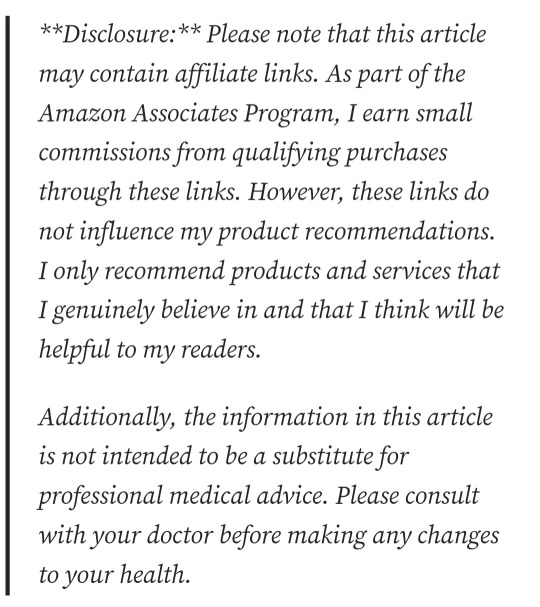
#healthy#health#healthcare#help#headlines today news#headline news#self healing#heartbreak#healthy diet#low cal diet#latest news#weight loss diet#liveblogging#life#love#literature#long reads#money#natural remedy#business news#nutritious#breaking news#world news#nature#news#black and white#beautiful#blog#beauty#business
2 notes
·
View notes
Text
From Resveratrol to Omega-3s: The Best Supplements for Slowing Down the Aging Process

When it comes to anti-aging, there are several supplements that have been studied for their potential benefits. It's important to note that while these supplements may show promise, individual results may vary, and their effectiveness is still being explored. Here are some commonly mentioned anti-aging supplements:
1. Resveratrol: Found in red wine, grapes, and berries, resveratrol is known for its antioxidant properties and potential anti-aging effects. It may help protect against age-related conditions by reducing inflammation and oxidative stress.

2. Coenzyme Q10 (CoQ10): CoQ10 is involved in cellular energy production and acts as an antioxidant. It may help support heart health, boost energy levels, and protect against oxidative damage.
3. NAD+ precursors: Nicotinamide adenine dinucleotide (NAD+) is a coenzyme involved in various cellular processes, including energy metabolism. NAD+ precursors, such as nicotinamide riboside (NR) and nicotinamide mononucleotide (NMN), are believed to support NAD+ levels, which decline with age. They may potentially improve cellular function and promote healthy aging.

4. Omega-3 fatty acids: Found in fatty fish, flaxseeds, and walnuts, omega-3 fatty acids have anti-inflammatory properties and may benefit heart health, brain function, and skin health. They may also help reduce the risk of age-related diseases.
5. Curcumin: Derived from turmeric, curcumin is a potent antioxidant and anti-inflammatory compound. It has been studied for its potential in supporting brain health, reducing inflammation, and protecting against age-related conditions.

6. Vitamin D: Adequate vitamin D levels are essential for bone health, immune function, and overall well-being. Vitamin D deficiency is common, especially among older adults, and supplementing may help support healthy aging.
Remember, it's always a good idea to consult with a healthcare professional before starting any new supplements, as they can provide personalized advice based on your individual health status and needs. Additionally, a well-rounded approach to anti-aging should also include a healthy diet, regular exercise, stress management, and adequate sleep.

Choosing Wisely: Key Cautions when Using Anti-Aging Supplements
When considering anti-aging supplements, it's important to exercise caution and keep a few points in mind:
1. Consult a healthcare professional: Before starting any new supplement regimen, it's crucial to consult with a healthcare professional who can assess your individual needs and guide you accordingly.
2. Safety and efficacy: The safety and efficacy of many anti-aging supplements haven't been extensively studied or approved by regulatory bodies. Be cautious of exaggerated claims and unproven products.
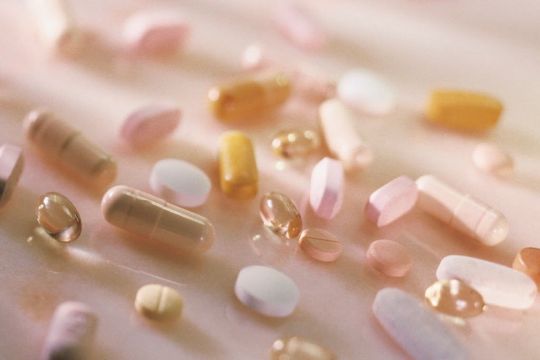
3. Quality and reliability: Purchase supplements from reputable sources to ensure quality and reliability. Look for third-party testing or certifications, such as NSF or USP, to verify the product's contents and purity.
4. Potential interactions: Certain supplements may interact with medications or have adverse effects if you have underlying health conditions. Discuss your current medications and health status with a healthcare professional.
5. Individual differences: Keep in mind that everyone's body is unique, and what works for one person may not necessarily work for another. Results and effectiveness may vary.
6. Balanced approach: While supplements may play a role, it's important to remember that a healthy lifestyle, including regular exercise, a balanced diet, adequate sleep, and stress management, are key factors in the aging process.
Remember, the best approach to anti-aging is a comprehensive one that considers multiple factors rather than relying solely on supplements.
2 notes
·
View notes
Text
Boosting Brain Power and Energy: The Advantages of Acetyl L-Carnitine

Acetyl L-Carnitine (ALCAR) is a supplement that has been studied for its potential benefits. Some of its reported benefits include:
1. Cognitive function: ALCAR may support cognitive function and mental clarity by enhancing neurotransmitter activity and promoting the production of acetylcholine, a neurotransmitter involved in learning and memory.
2. Energy production: ALCAR plays a role in the metabolism of fats and helps transport fatty acids into the mitochondria, the powerhouses of cells, where they are converted into energy.
3. Physical performance: ALCAR may enhance exercise performance by improving energy metabolism and reducing fatigue. It may also support muscle recovery and reduce muscle damage.

4. Mood and depression: ALCAR has been studied for its potential antidepressant effects. It may help improve mood and alleviate symptoms of depression by modulating neurotransmitters and supporting brain function.
5. Neuroprotection: ALCAR exhibits antioxidant properties and may protect against oxidative stress, which can contribute to neurodegenerative diseases such as Alzheimer's and Parkinson's.
6. Anti-aging effects: ALCAR has been investigated for its potential anti-aging properties. It may help combat age-related declines in mitochondrial function and support overall cellular health.

It's important to note that while ALCAR shows promise in these areas, individual results may vary, and more research is needed to fully understand its benefits and potential side effects. As with any supplement, it's advisable to consult with a healthcare professional before starting or making changes to your supplementation routine.
Understanding the Risks: Unraveling the Side Effects of Acetyl L-Carnitine for Informed Decisions

Certainly! When considering Acetyl L-Carnitine (ALCAR) supplementation, it's important to be aware of potential side effects. While ALCAR offers some positive benefits, it's essential to understand the full picture. Here are a few side effects you should know about:
1. Gastrointestinal discomfort: Some individuals may experience mild digestive issues like nausea or stomach discomfort when taking ALCAR. These effects are usually temporary and can be minimized by taking the supplement with food.
2. Restlessness or insomnia: ALCAR has stimulating properties that may affect your sleep patterns, making it harder to fall asleep or stay asleep. It's advisable to take ALCAR earlier in the day to reduce the risk of sleep disturbances.
3. Increased appetite: A small number of people have reported an increase in appetite while taking ALCAR. This effect could lead to weight gain if not managed through mindful eating habits and portion control.

4. Rare allergic reactions: Although rare, some individuals may be allergic to ALCAR, resulting in symptoms such as itching, swelling, or difficulty breathing. If you notice any signs of an allergic reaction, seek immediate medical attention.
5. Distinct body odor: In a few cases, individuals have reported a unique body odor associated with ALCAR supplementation. While this side effect is uncommon, it has been documented in some studies.
It's worth mentioning that side effects can vary from person to person, and not everyone will experience them. Starting with a low dose and gradually increasing it while monitoring your body's response can help reduce the likelihood of side effects. If you have any concerns or experience persistent side effects, it's always a good idea to consult with a healthcare professional.
2 notes
·
View notes
Text
Toxicity Risks of Common Supplements: Exploring the Dark Side of Overdosing
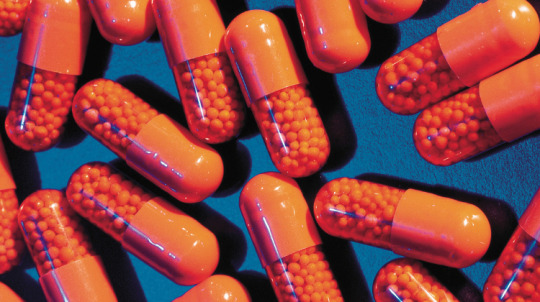
Supplements can be a great way to boost your health and well-being, but it's important to take them safely and responsibly. Too much of a good thing can be harmful, and certain supplements can be toxic if taken in excess.
Vitamin A
Vitamin A is an essential nutrient that plays a role in vision, immune function, and cell growth and development. However, excessive intake of vitamin A supplements can be toxic. Symptoms of vitamin A toxicity can include nausea, vomiting, dizziness, headache, and blurred vision. In severe cases, vitamin A toxicity can damage the liver and other organs.

Iron
Iron is an essential mineral that is necessary for the production of hemoglobin, which carries oxygen in the blood. However, too much iron can be harmful. Symptoms of iron overdose can include nausea, vomiting, diarrhea, abdominal pain, and constipation. In severe cases, iron overdose can damage the liver, heart, and other organs.
Selenium
Selenium is an essential trace mineral that has antioxidant properties. However, excessive intake of selenium supplements can lead to selenosis, a condition characterized by hair loss, skin rash, and digestive problems. In severe cases, selenosis can cause neurological problems and even death.

Vitamin D
Vitamin D is an essential nutrient that is important for bone health and immune function. However, excessive intake of vitamin D supplements can lead to hypercalcemia, a condition characterized by high levels of calcium in the blood. Symptoms of hypercalcemia can include nausea, vomiting, weakness, constipation, and kidney problems.
Other supplements
In addition to the supplements listed above, there are a number of other supplements that can be harmful if taken in excess. For example, high doses of zinc supplements can interfere with copper absorption and cause anemia. High doses of omega-3 fatty acid supplements can increase the risk of bleeding. And high doses of herbal supplements, such as ephedra and kava, can cause serious side effects, including heart problems and seizures.

Safety tips
To avoid the potential dangers of excessive supplement intake, it is important to follow recommended dosage guidelines and consult with a healthcare professional before starting any new supplements. Here are some additional safety tips:
• Read the supplement label carefully and follow the dosage instructions.
• Be aware of the potential side effects of the supplements you are taking.
• Tell your healthcare professional about all of the supplements you are taking, including herbal supplements and over-the-counter medications.
• Avoid taking supplements if you are pregnant or breastfeeding, unless directed to do so by your healthcare professional.
Supplements can provide benefits when taken in appropriate doses. However, it is important to be aware of the potential dangers of excessive supplement intake. By following the safety tips above, you can help to ensure safe and effective usage of supplements.
Supplement Overdose: What You Need to Know to Stay Safe

We all strive to live healthy lives and often turn to supplements to support our well-being. While these products can offer benefits when taken responsibly, it's crucial to understand that even natural or herbal supplements can pose risks if consumed in excessive amounts. In this article, we'll explore what you need to know about supplement overdose and how to handle such situations.
1. Recognizing the Signs:
Identifying a supplement overdose can be challenging, as symptoms can vary depending on the specific supplement and dosage. However, some common signs to look out for include nausea, vomiting, dizziness, rapid heartbeat, confusion, and difficulty breathing. If you or someone you know experiences these symptoms after taking supplements, it's essential to act quickly.
2. Seek Immediate Medical Help:
If you suspect a supplement overdose, don't hesitate to call emergency services or rush to the nearest emergency room. Prompt medical attention is crucial in such situations. While waiting for professional help, try to keep the affected person calm and monitor their vital signs if possible.
3. Provide Information:
When seeking medical help, provide accurate information about the supplements ingested, including the brand name, dosage, and any other medications being taken. This information will assist healthcare professionals in providing the appropriate treatment.

4. Avoid Self-Remedies:
It's crucial not to take matters into your own hands by inducing vomiting or administering any substances without medical guidance. Incorrect interventions can potentially worsen the situation or lead to complications. Trust the expertise of healthcare professionals to guide you through the necessary steps.
5. Prevention Is Key:
Preventing supplement overdose is always better than dealing with its consequences. Here are some tips to keep in mind:
a. Consult a Healthcare Professional: Before starting any new supplement regimen, consult with a healthcare professional who can assess your specific needs and recommend appropriate dosages.
b. Follow Recommended Dosages: Always adhere to the recommended dosages provided on the supplement packaging or as advised by a healthcare professional. More is not necessarily better when it comes to supplements.
c. Be Mindful of Combinations: If you're taking multiple supplements or medications, be aware of potential interactions. Some combinations can lead to adverse effects or decrease the effectiveness of certain substances.
d. Store Supplements Safely: Keep supplements out of reach of children and in a cool, dry place as directed on the packaging. This helps maintain their potency and prevents accidental ingestion.
Supplements can be beneficial when used responsibly, but it's crucial to understand the risks of overdose. If you suspect a supplement overdose, seek immediate medical help and provide accurate information to healthcare professionals. Remember, prevention is key, so consult with a healthcare professional, follow recommended dosages, be mindful of combinations, and store supplements safely. By being informed and cautious, you can make informed choices about your well-being and enjoy the benefits of supplements without compromising your health.
3 notes
·
View notes
Text
Effective Natural Face Masks for Balancing Oil-Prone Skin

Oily skin can be a common concern for many individuals, often leading to excess shine, clogged pores, and occasional breakouts. Incorporating natural face masks into your skincare routine can help regulate oil production and restore balance to your complexion. Here are some of the best natural face masks specifically designed for oily skin:
1. Bentonite Clay and Apple Cider Vinegar Mask:
Bentonite clay is a powerful absorbent known for its ability to draw out impurities and excess oil from the skin. When combined with raw, unfiltered apple cider vinegar, which contains natural acids and enzymes, it creates a potent mask for oily skin. To create this mask, mix equal parts of bentonite clay and apple cider vinegar to form a smooth paste. Apply the mask evenly to your face, avoiding the eye area, and let it dry for approximately 10-15 minutes. Gently rinse off the mask with warm water, and you'll notice a reduction in oiliness and improved skin clarity.
2. Green Tea and Lemon Juice Mask:

Green tea is rich in antioxidants and possesses anti-inflammatory properties that can help control oil production and calm irritated skin. Lemon juice, on the other hand, acts as a natural astringent to minimize excess oil and tighten pores. To make this mask, brew a cup of green tea and allow it to cool. Mix 2 tablespoons of the cooled green tea with 1 tablespoon of freshly squeezed lemon juice. Apply the mixture to your face and let it sit for about 10-15 minutes before rinsing off. Regular use of this mask can help rebalance the skin and promote a healthier complexion.
3. Yogurt and Turmeric Mask:
Yogurt contains lactic acid, a gentle exfoliant that helps remove dead skin cells and unclog pores. Turmeric, known for its anti-inflammatory properties, can soothe and calm oily skin. To create this mask, mix 2 tablespoons of plain yogurt with 1/2 teaspoon of turmeric powder until well combined. Apply the mask to your face, ensuring even coverage, and leave it on for approximately 10-15 minutes before rinsing off. This mask can help control excess oil, reduce blemishes, and leave your skin feeling refreshed.
It's important to note that before applying any mask, it is crucial to cleanse your face thoroughly to remove impurities and prepare your skin for maximum absorption of the mask's beneficial ingredients. Additionally, perform a patch test on a small area of your skin to check for any potential allergies or sensitivities to the ingredients used.

Incorporating natural face masks into your skincare routine is an effective way to manage oily skin. These masks, formulated with carefully selected natural ingredients, can help regulate oil production, minimize shine, and promote a balanced complexion. However, it's essential to remember that everyone's skin is unique, and individual results may vary. If you have persistent skin concerns or severe oiliness, it's advisable to consult a dermatologist for personalized advice and treatment options.
Embrace the power of nature by integrating these natural face masks into your skincare regimen, and enjoy the benefits of a clearer, healthier, and more balanced complexion.
Oily Skin and Hormonal Contraceptives: Understanding Effects and Making Adjustments
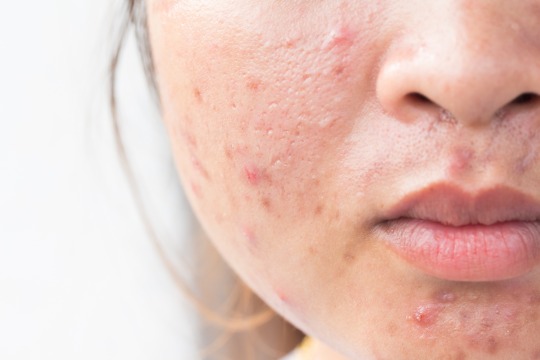
Are you experiencing changes in your skin since starting hormonal contraceptives? If you've noticed an increase in oiliness and breakouts, you're not alone. Oily skin is a common side effect of hormonal contraceptives for many individuals. In this article, we'll explore the relationship between hormonal contraceptives and oily skin, understand the effects they can have on your skin, and provide practical tips to help you make adjustments for a healthier complexion.
Understanding the Connection:
Hormonal contraceptives, such as birth control pills, patches, or hormonal IUDs, work by altering your hormone levels to prevent pregnancy. These changes in hormone balance can influence the sebaceous glands, which are responsible for producing oil. As a result, the production of sebum (oil) increases, leading to oily skin.
Effects on the Skin:
Oily skin caused by hormonal contraceptives may present several challenges. Excess oil can clog pores, resulting in blackheads, whiteheads, and acne breakouts. Individuals with pre-existing acne may find that their skin worsens, while those who previously had well-balanced skin may suddenly experience an oilier complexion.
Making Adjustments:
If you're dealing with oily skin due to hormonal contraceptives, fret not! There are several adjustments you can make to manage and improve your skin's condition.

1. Skincare Routine: Establish a consistent skincare routine tailored for oily skin. Use gentle, oil-free cleansers to remove excess oil and dirt without stripping away essential moisture. Incorporate exfoliation once or twice a week to unclog pores and remove dead skin cells.
2. Oil-Free Products: Opt for oil-free or non-comedogenic (non-pore-clogging) moisturizers, sunscreens, and makeup products. Look for labels that explicitly state "oil-free" or "non-comedogenic" to ensure they won't exacerbate oiliness or cause breakouts.
3. Salicylic Acid: Consider incorporating skincare products containing salicylic acid, a beta-hydroxy acid known for its ability to penetrate pores and unclog them. It helps to regulate oil production and reduce the occurrence of breakouts.
4. Blotting Papers: Keep oil-absorbing blotting papers handy throughout the day to gently dab away excess oil without disrupting your makeup. This can help control shine and prevent the buildup of oil on your skin.
5. Healthy Lifestyle Habits: Maintain a balanced diet, drink plenty of water, and get regular exercise. These healthy lifestyle habits can contribute to overall skin health and help manage oiliness.
6. Consult a Dermatologist: If you're struggling to manage oily skin despite making adjustments to your skincare routine, it may be beneficial to seek advice from a dermatologist. They can provide personalized recommendations and treatment options to address your specific concerns.
Conclusion: Experiencing oily skin as a side effect of hormonal contraceptives can be frustrating, but with the right adjustments and skincare routine, you can effectively manage it. Remember that everyone's skin is unique, so it may take some trial and error to find what works best for you. By understanding the effects of hormonal contraceptives on your skin and implementing practical adjustments, you can achieve a healthier, more balanced complexion.
Disclaimer: This article is for informational purposes only and is not intended to replace professional medical advice. Consult with a healthcare provider or dermatologist for personalized guidance based on your specific situation.
Remember, embrace your skin's uniqueness and take care of it with patience and kindness.
2 notes
·
View notes
Text
Revitalize Your Skin: Best Natural Masks for Hydrating Dry Skin

Dry skin can be a common concern for many individuals, and natural masks can provide effective relief by hydrating and nourishing the skin. When it comes to combating dryness, several natural ingredients offer moisturizing and soothing properties. Let's explore a few of the best natural masks for dry skin:
1. Avocado and Yogurt Mask: Avocado, a nutrient-rich fruit, is known for its ability to moisturize and soften the skin. When combined with plain yogurt, which provides hydration and soothing effects, it creates a potent mask for dry skin. To prepare this mask, mash a ripe avocado until smooth, then mix it with a tablespoon of plain yogurt. Apply the mixture evenly to your face, allowing it to sit for approximately 15-20 minutes before gently rinsing it off. Regular use of this mask can help restore moisture and leave your skin feeling rejuvenated.

2. Oatmeal and Honey Mask: Oatmeal has long been recognized for its gentle exfoliating properties and its ability to lock in moisture. By combining it with the natural humectant qualities of honey, you can create an effective mask for dry skin. To make this mask, mix equal parts of ground oatmeal and honey until you achieve a thick paste. Apply the mixture to your face, gently massaging it in circular motions. Leave the mask on for 15-20 minutes to allow the oatmeal to nourish and moisturize your skin. Rinse it off with lukewarm water, revealing a smoother and more hydrated complexion.
3. Aloe Vera Gel Mask: Aloe vera gel, derived from the succulent plant Aloe barbadensis, is renowned for its exceptional moisturizing and healing properties. It is particularly beneficial for soothing and hydrating dry and irritated skin. To create an aloe vera gel mask, extract fresh gel directly from an aloe vera leaf and apply it generously to your face. Allow it to penetrate your skin for approximately 15-20 minutes before rinsing it off with water. Regular use of this mask can help alleviate dryness and promote a healthier, more radiant complexion.

Before applying any mask, it is crucial to cleanse your face thoroughly to remove impurities and prepare your skin for maximum absorption of the mask's beneficial ingredients. Additionally, it is recommended to perform a patch test on a small area of your skin to check for any potential allergies or sensitivities to the ingredients used.
Incorporating these natural masks into your skincare routine can provide much-needed hydration and nourishment to combat dry skin. However, it's important to remember that individual results may vary. If you have persistent skin concerns or severe dryness, it's advisable to consult a dermatologist for personalized advice and treatment options.
Take care of your skin by embracing the natural goodness of these masks and enjoy the benefits of a well-hydrated and revitalized complexion.

Dry Skin Care 101: Expert Advice for Hydrated and Healthy Skin
Taking care of dry skin requires a consistent skincare routine and adopting certain habits to retain moisture and promote healthy skin. Here are some tips:
1. Use a Gentle Cleanser: Opt for a mild, fragrance-free cleanser that won't strip away natural oils from your skin. Avoid hot water, as it can further dry out your skin. Stick to lukewarm water instead.
2. Moisturize Regularly: Apply a moisturizer immediately after cleansing while your skin is still damp. Choose a rich, hydrating moisturizer that contains ingredients like hyaluronic acid, glycerin, or ceramides to lock in moisture. Apply moisturizer multiple times a day if needed, especially during dry weather.

3. Avoid Harsh Skincare Products: Steer clear of products that contain alcohol, fragrances, or harsh chemicals, as they can exacerbate dryness and irritation. Opt for gentle, fragrance-free skincare products that are specifically formulated for dry or sensitive skin.
4. Protect Your Skin: Shield your skin from harsh weather conditions by wearing protective clothing, such as hats, scarves, and gloves. Apply a broad-spectrum sunscreen with at least SPF 30 to safeguard your skin from harmful UV rays, even on cloudy days.
5. Humidify the Air: Use a humidifier in your home, especially during the winter months when indoor heating can dry out the air. This helps add moisture to the environment and prevent excessive drying of your skin.
6. Avoid Long, Hot Showers: Prolonged exposure to hot water can strip your skin of its natural oils, leading to further dryness. Keep showers short and use lukewarm water instead. Pat your skin dry gently with a soft towel after bathing, leaving some moisture on your skin, and apply moisturizer immediately.

7. Stay Hydrated: Drink an adequate amount of water throughout the day to keep your skin hydrated from within. Hydration plays a vital role in maintaining healthy skin.
8. Exfoliate Gently: Use a gentle exfoliator once or twice a week to remove dead skin cells and promote cell renewal. Be cautious not to over-exfoliate, as it can irritate and worsen dryness. Look for exfoliating products specifically formulated for dry or sensitive skin.
9. Avoid Irritants: Minimize exposure to harsh chemicals, strong detergents, and other irritants that can aggravate dry skin. Wear gloves while doing household chores or using cleaning products to protect your hands.
10. Consult a Dermatologist: If your dry skin persists or becomes severe, it's advisable to consult a dermatologist. They can provide personalized recommendations and prescribe suitable treatments to alleviate dryness and address underlying causes.
Remember, everyone's skin is different, so finding the right skincare routine may require some experimentation. Be patient and consistent with your skincare routine, and give your skin time to adjust to any new products or habits.
2 notes
·
View notes